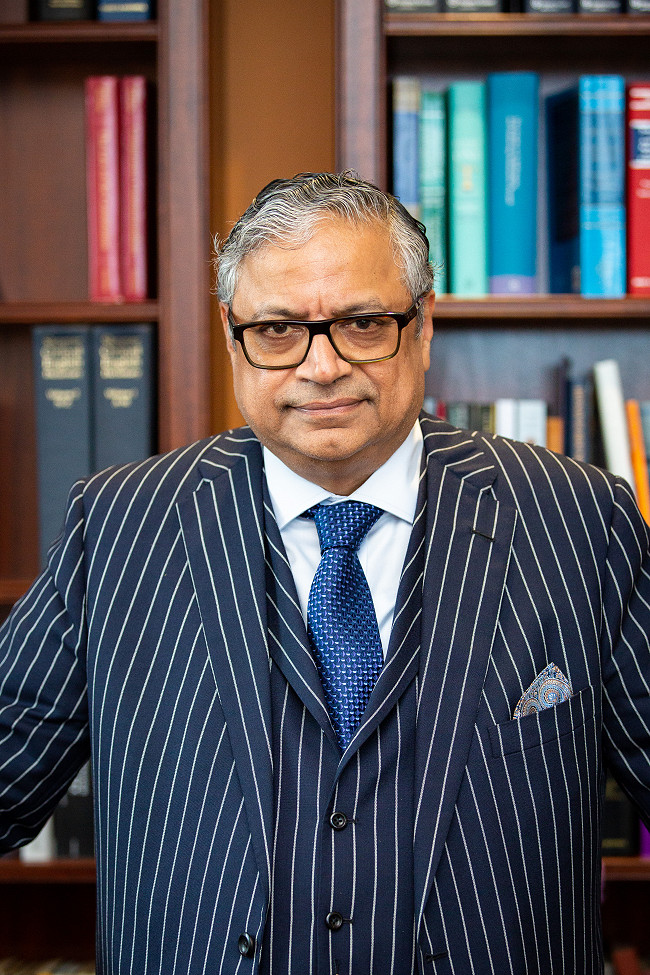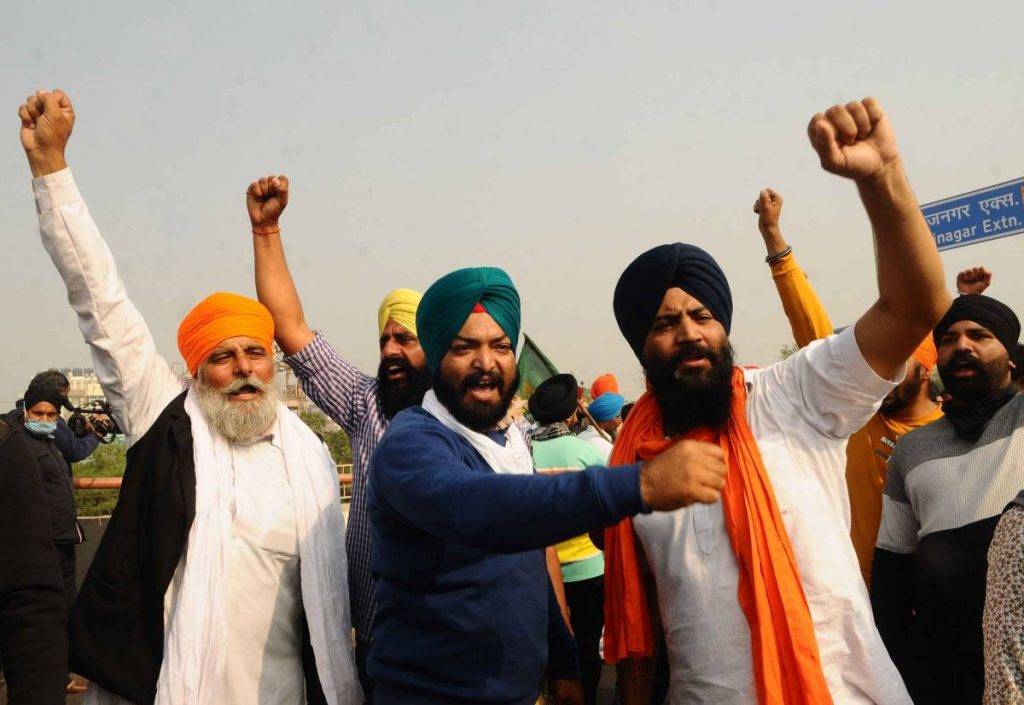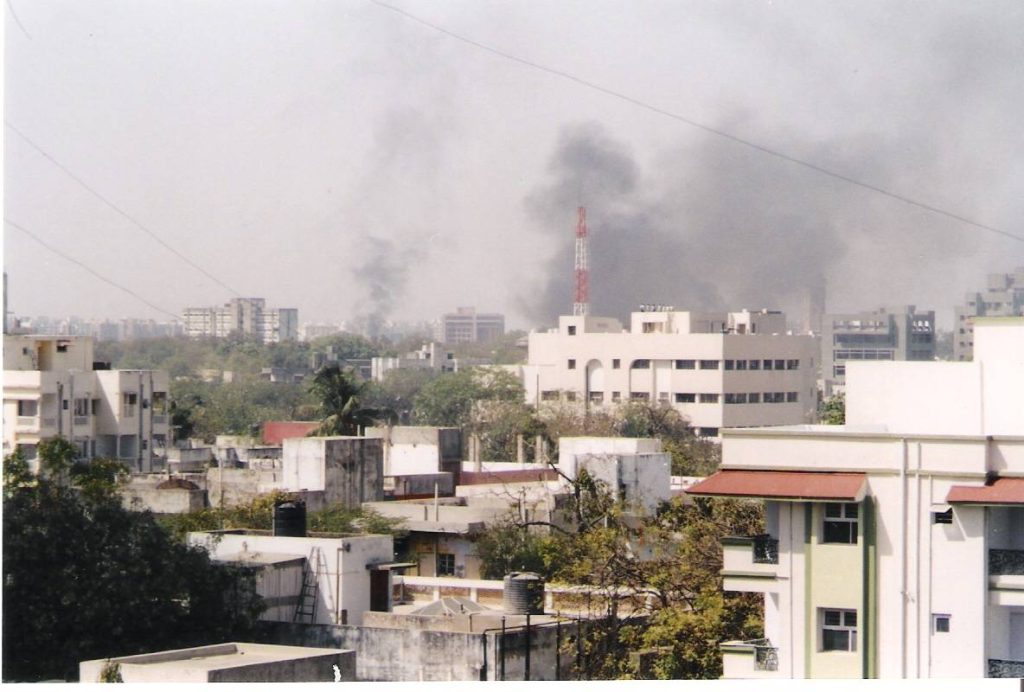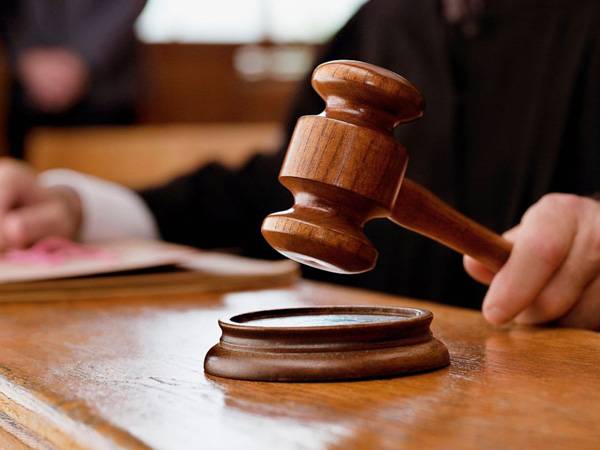
BY ABHISH K BOSE
Advocate Gopal Subramanium, a native of Bengaluru, graduated in law from Delhi University and worked under Soli J Sorabjee. In 1993, he was designated as a Senior Advocate by the Supreme Court of India, suo moto, thus becoming one of the youngest senior advocates in the history of the Supreme Court. In 2005 Gopal was appointed as the Additional Solicitor general of India and served as the Solicitor General from 2009 to 2011.
During his tenure as a law officer, he was honoured with the National Law Day Award for Outstanding Jurist, presented to him in 2009 by the President of India, for his consistent professional excellence and adherence to the highest traditions of the Bar.
Gopal continues to act as lead counsel in several path-breaking matters. He served as lead counsel for Novartis AG in Novartis’ challenge before the Supreme Court to deny granting it an Indian patent for the cancer drug ‘Glivec.’ His arbitration experience includes appearing as lead counsel for Indian companies in ICC and domestic arbitrations. In addition, he regularly deposes as an expert witness on Indian law in SIAC and other international commercial arbitrations.
Gopal has also served as a member of the arbitral tribunal presided over by Justice R.S. Pathak, former Chief Justice of India and Judge, International Court of Justice, in arbitration between Transammonia AG and MMTC Limited. In 2017, he represented Japan’s Daiichi Sankyo in enforcement proceedings before the Delhi High Court for a $550 million ICC award with a seat at Singapore. He was granted permission to appear in challenge proceedings concerning the same award before the Singapore High Court.
In 2017, Gopal acted as lead counsel for the Petitioners in Justice K.S. Puttaswamy (Retd.) v. Union of India where a nine-judge bench of the Supreme Court of India unanimously held that there was a fundamental right to privacy under the Indian Constitution. An exclusive interview with Asian Lite’s Abhish K. Bose discusses his functioning as amicus curie in the Sohrabuddin Sheikh encounter case, the imprisonment of social activists by the Union government, and the slapping of sedition cases against a large number of people among a number of things.

ABHISK K BOSE: In the book ‘Shades of Truth: A Derailed Journey’ Kapil Sibal alleges that you were not appointed as an SC judge despite the collegium recommending as you persuaded the SC to entrust CBI with the investigation of the Kausar Bi and Sohrabuddin Sheikh fake encounter case. What is your take?
GOPAL SUBRAMANIUM: On the statement, given the extraordinary respect I have for Kapil, I am unsure whether that was the real reason. My reflections over time prompt that the decisions are not taken on the basis of these considerations. So the first may look like an apparent perception; in retrospect, I am unsure about decisions based on perceptions. My position to decline consent was based on the principle that the executive and those invited to accept the Judicial Office must have mutual trust. If that trust is deficient in the beginning, it puts everybody at a disadvantage and causes unnecessary polarity in outcomes unintended by the very nature of judicial avocation.
On the second point relating to the disillusionment with the Supreme Court, I confess that I do have that optimism and positivism. It would not be possible for me to discharge functions freely within an institution. The kinetic potentiality of human dynamism postulates that nothing is rigid. Any verdict pronounced has to be ultimately judged by the history of time. History of time is a more powerful judge than individuals. One can make a difference only if one think positively and rationally and if you are willing to engage and dialogue with people whose views may lead to a particular disappointment or disagreement.
ABHISH K BOSE: Your efforts as an amicus curie in the Sohrabuddin encounter case led to the Supreme Court verdict taking the case from Gujarat police and handing it over to the CBI in 2010. However, even the judge who presided over the case at the CBI Court died under mysterious circumstances. The main accused in the case Amit Shah was discharged from the case in 2014. What are your ruminations?
GOPAL SUBRAMANIUM: We should know that one cannot come to any conclusions if there is one thing I have learned in criminal law: circumstances may tend to incriminate. Still, the evidence must also reasonably exclude all possible exculpatory circumstances and situations. It takes a lot of training to understand this in criminal law. So I would say nobody can prejudge any outcome in a criminal case, and is not fair to do that. Because humans are individuals and they may have possible explanations.
One of the significant problems, shall I say, faced in a justice delivery system is public perception. It may not necessarily be based on facts and not necessarily be a sound perception. So I am not willing to comment on the individual, the individuals are people who have adorned distinguished positions both in the state and also today in the central government. I think the process of law ultimately has to answer one way or the other, and if it has responded to in favour of a person, I don’t think the process itself can be questioned.
This is really the difference between testing truth and sensing some way what could possibly be the truth. But truth ultimately has to be tested and verified in a criminal case. So I must tell you that populist assessments are best avoided because, ultimately we must have some degree of faith in the processes of the law, and the methods have to be safeguarded. It is only then that outcomes can be judged.

ABHISH K BOSE: Do you think a free and fair trial happened in the Sohrabuddin encounter case?
GOPAL SUBRAMANIUM: As a professional, I had no occasion to review the case records, and without checking the complete documents, I don’t think making any comment on it is correct. Because when a person comments on a trial or a process, he must undertake the examination of the whole record, and he must assess them very objectively based on several factors on either side and should come to a conclusion. When I have not done that, I can’t make that comment. While I was amicus curie, I carried out my job, and after that, I had no time for any review of any papers of that case. Unless somebody has seen a complete record of a trial matter, to comment on the trial or the process is not fair.
ABHISH K BOSE: A CBI Court judge died under mysterious circumstances in connection with the case and allegations sprang up. Still you persist in your opinion?
GOPAL SUBRAMANIUM: The death of any person is a matter of grief. The end of a judge is sad, particularly when he is holding a public office. But you must understand that Courts have enquired into the unfortunate events. Again, we must not be carried away that a sense of mystery is attached to it. The SC had undertaken an inquiry; the High Court also launched a probe, hence the need to trust the people who conducted the investigation. As I said to make fiction look like the fact is an injustice. The outcome of the investigation and the assessment by the Court was based on what happened. Often life ends even though it is due to organic causes. So such events have to be investigated rationally, and that is what happened.
ABHISH K BOSE: India is going through a tough phase. Do you think that in such a scenario, the Supreme Court of India, the custodian of the Constitution, should play a proactive role?
GOPAL SUBRAMANIUM: I think that the SC should always honour the freedom of speech and expression, and the SC has got the moral stature to be able to persuade the governments of the importance of freedom of speech and expression.
Governments must not be defensive on this account. They must embrace free speech as a cardinal principle of any democratic society. And this is why Courts should engage and encourage transformative exercise in constitutional behaviour and perception. The late Justice Krishna Iyer was an extraordinary judge. By his judgements, he was able to transform governmental consciousness. So this consciousness also involves debate and engagement. All of us need to redefine what we think is free speech, and for me, free speech is freedom of ideas and free ideas are vital for any society. It is, according to me, a footprint of an individual soul. Free speech, means responsible speech but this is an attribute of human freedom. In particular, when governments know about the denial of liberty in the past they have a greater duty to preserve free speech. In my view, these areas are where the Courts can play a stellar role in terms of active engagement.

ABHISH K BOSE: The Supreme Court on June 26th this year dismissed a plea of Zakia Jaffri challenging the SITs clean chit to 64 persons, including the then Gujarat Chief Minister Narendra Modi in the 2002 Gujarat riots case. The SC termed the protest petition as devoid of merit. Meanwhile, Teesta Setalvad and former Gujarath DGP RB Sreekumar were arrested for alleged fabrication of evidence regarding 2002 Gujarat riots cases. Your comments
GOPAL SUBRAMANIUM: I happened to know the late Motilal Setalvad, I happened to know Athul Setalvad, and I also know Teesta Setalvad, so her arrest is a matter of personal anguish for those who know the background of an individual. All of us must take extra precautions so that suggestions of any possible retribution or reprisal are necessary to be avoided. The more excellent governance is, the greater must be the ability to let go of a perception of reprisal.
But this is where we all have to engage; we all have to be positive because, ultimately, it can change. Change takes place only through dialogue, consultative participation, discussion, and looking at progressive behaviours. All these are vital components of social consciousness that have to be readily brought to the fore. On the merits of an individual case, I have had no opportunity to read the record and cannot say more.

ABHISH K BOSE: There is growing anxiety that the judiciary’s autonomy is being compromised. The historic press conference of the four senior SC judges in 2018 is especially relevant here. To what extent the judicial fraternity is failing to safeguard this autonomy? Is the legal system bound to be vulnerable to be coopted by an overbearing executive? Do you feel that the people’s faith in the judiciary is at risk of weakening?
First, I have to maintain that the concept of an overbearing executive is overstated. Judges are Judges and independent. They decide the attitudes of the governments. It is not the other way. Ultimately, judges and lawyers have to speak up for what is right and engage for what is right, not based on mistrust. The language of doubt is a failure of culture. Judges are entirely free and meant to be free agents under the Constitution and because they are free agents, they fashion their destiny. They are expected to be in control of their future and effectively discharge those functions. They must also believe that they can do it and will do it. This is the point I am making. If we don’t have faith in the judiciary, it is like we are not having faith in ourselves.
To conclude, a very long distance needs to be travelled while there could be some challenging moments in society. But when there are difficult moments greater must be the resolve to have a dialogue, greater must be the willingness to engage, and greater must be the willingness to collaborate for a larger purpose. Individual autonomy, freedom, respect for the Constitution and the importance of public confidence in judicial institutions constitute central values. All this requires collaborative work. It requires a very high level of respect.
The level of respect and effort required is that a man has to step out of himself, and what can initiate and guide this process is a higher overarching presence of more significant values. The overriding fact of greater values is the only key to resolving perceptions. How can those overarching values be actualized in the legal process? If we apply this attribution, we will always find that the judiciary will always be the sentinel qui vive.
While there could be moments when our hopes are tested, my suggestion is that we must never be hopeless. If we are hopeless, there is nothing to strive for and we must also bear in mind that there are future generations of judges, and lawyers and there are several inspiring judges in today’s world. The future could be defined only through a progressive outlook, an outlook which is based on social consciousness, egalitarianism, equality, and the supremacy of the person. The State must be a condiment of hope and the citizen and the state need not have a disparate relation. They can have a healthy, constructive and critical relationship and still work together. The ability to work together is the most important factor and those who inspire that ability are the real leaders.
ABHISH K BOSE: The National Crime Records Bureau ( NCRB) data shows that there has been a 165% increase in the registration of sedition cases since 2016. It is also alleged that the sedition cases are slapped to settle political scores. Currently, the matter is under the scrutiny of the SC. What are your views on the increasing number of sedition cases?
GOPAL SUBRAMANIUM: I think that sedition is a very extreme offence. It is also somewhere antiquated. It was actually used for repression earlier. So we must understand that what is an antiquated provision should not be used with the passage of time. There is something called the doctrine of demise that a provision becomes meaningless with the advance of time. The march of time and civilisation has to be considered. We must expect that the parliament will be aware that things have moved and change is the order of the day and one must expect that the right results will come.

ABHISH K BOSE: Laws are made by the elites and are bound to favour the socio-economic and the political elite. But all are in theory, assumed to be equal in the eyes of the law. How can the gap between the real and the ideal be narrowed if not bridged? Please comment.
GOPAL SUBRAMANIUM: Let us not forget that ours is a country that had Dalit Presidents. Let us not forget that someone from the oppressed section holds the most crucial position in the country. These are facts of inspiration. We should not forget that such people who have risen to the highest office. Even if this handful of people made this impact they have made an impact. Dr BR Ambedkar was the greatest colossus of his times and the true embodiment of Indian Conscience. No one can make justice constitutional history except by reading his complete works which the government of Maharashtra actually published under a superb editorial committee presided over by former Governor RS Gavai. If one reads them we will learn the length and breadth of understanding of law and inequality. You have got a very fair point. That equality as an ideal is one thing and equality, in reality, is another. That is why the theory exists that power itself must be open to scrutiny. The concept of power being open to scrutiny, power being exercised reasonably, and power being exercised non-arbitrarily is one way to make sure that the underdog never suffers.
ABHISH K BOSE: Is the current mode of selecting judges satisfactory? What changes would you suggest to improve it? How can this process be vaccinated against political-ideological and casteist considerations?
GOPAL SUBRAMANIUM: Perhaps with more structured data collection and analysis, greater sustained engagement could emerge from the selection process. Sustained attention excludes personal considerations or preferences. You have to do a solid studied profile of the person with multiple factors to consider. Instead, a multi-factorial approach in a depersonalized setting enables merit to defend and shine. It will shine through like anything. So the ability to sense the brilliance of a judge is a part of the selection process. That requires prognosis, it involves forecasting and deep human understanding.
ABHISH K BOSE: Is it possible and feasible to adopt a hybrid system by which certain kinds of cases are tried under the jury system? What in your view would be the impediments to this option?
GOPAL SUBRAMANIUM: In India, the jury system will be seriously flawed because it will be based on perceptions. It will be challenging for any judge to give appropriate directions to a group of people in cases where public feeling may run high. So I think it is unsafe to try the issues in such a system.
ABHISH K BOSE: Litigation is prohibitively expensive, especially at the higher courts. This infuses an unwitting bias in the legal system in favour of the rich and the powerful. Often cases are won or lost based on the understanding of the counsel. Such lawyers are affordable only to the rich, which could subvert justice to the poor. What if any is the way out so that justice may be ensured for the poor and not merely promised in theory?
GOPAL SUBRAMANIUM: I think there are three important ways in which access to justice can be made more equitable. There is a brilliant future for younger lawyers that has to be nurtured. It has to be nurtured and cultivated and there is nothing more thrilling for a lawyer than the acknowledgement of hard work and merit. The greatest joy of the young lawyer is the acknowledgement by the Court. In Odisha, they have introduced a scheme in which the lawyer who conducts a trial capably earns a prize through a process of nomination. This will encourage young lawyers. The second is that judges by training can always judge that someone is getting an undue benefit or someone is being prejudiced. This is where the judges with sagacity and experience can order a course correction.
The third is that we must make legal aid entirely professional, and honourable, and we must make legal aid a significant item in public spending. Any good government must be sensitive to the judicial process in terms of allocations of money, infrastructure, and technology. This is how constitutions will survive and endure.

ABHISH K BOSE: You were elected as an honorary master of Grays Inn. Could you compare the independence of the judiciary in UK and India?
GOPAL SUBRAMANIUM: The Judiciaries in both countries are conceptually committed to Impartiality and Independence. The circumstances of the society, the nature of work which comes up before Courts, and the value of precedents are not quite identical. The two societies are different and the challenges are very different. I was very happy to be called to the Gray’s Inn because Ambedkar’s portrait adorns the Inn. However there is something called best global practices, and we should be open to to incorporate whatever we can in our own practice. Great Judges like Justice Krishna Iyer knew the value of change; what is of value is the ability to enhance our constitutional promises to the people in the preamble.
ABHISH K BOSE: Recently the Prime Minister referred somewhat offhand that justice must be done to the tens and thousands of undertrials languishing for years and years in various prisons of the country with trials yet to begin. The courts in the country maintain the dictum that jail should be the exception and bail should be the norm. But those in the category I refer to are not in a position to take bail. What is your take?
GOPAL SUBRAMANIUM: I think what the Hon’ble Prime Minister mentioned about the undertrials is a serious matter. There is a need to brainstorm to find solutions such as Review by independent bodies so that trials may be finished one way or the other, and use of technology where necessary. The need to be denied liberty must be augmented by very objective factors.
ABHISH K BOSE: You were an amicus curie appointed by the Sree Padmanabha Swamy temple. Please explain your association as amicus curie of the temple.
GOPAL SUBRAMANIUM: I have ceased to be the amicus curie. Even an amicus curiae is not supposed to have any attachment to anything. It is a professional task undertaken, done and promptly forgotten.


